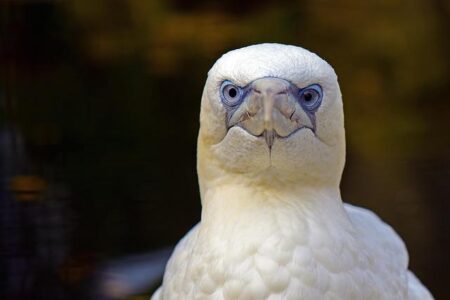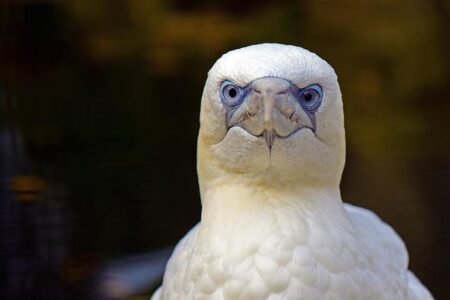The Gambia: West Africa’s Emerging Leader in Sustainable Ecotourism
In recent years, The Gambia has quietly risen as a standout destination for ecotourism within West Africa. Though small in size and often overshadowed by its larger neighbors, this dynamic country is rapidly attracting travelers who seek pristine natural environments, rich biodiversity, and authentic cultural encounters. With the global travel community increasingly prioritizing sustainability, The Gambia’s commitment to environmental stewardship and community-led tourism initiatives makes it an exceptional choice for eco-conscious explorers eager to connect deeply with both nature and local traditions.
Discovering The Gambia’s Diverse Ecosystems: A Paradise for Wildlife Enthusiasts
Despite covering just over 11,000 square kilometers, The Gambia boasts an impressive variety of ecosystems that support a wealth of plant and animal life. From the dense mangrove swamps along the River Gambia to sprawling savannahs and vibrant wetlands, this compact nation offers habitats that nurture remarkable biodiversity. Visitors can observe Nile crocodiles sunbathing on riverbanks, troops of vervet monkeys leaping through forest canopies, and more than 550 bird species-including majestic African Fish Eagles soaring overhead.
A highlight for nature lovers is the River Gambia National Park (commonly called Baboon Islands), where eco-guides lead visitors on low-impact tours designed to foster close wildlife encounters while preserving fragile habitats. Other must-see reserves include:
- Katchikally Crocodile Pool: A revered sanctuary where sacred crocodiles are protected; here guests learn about Gambian folklore intertwined with conservation efforts.
- Tanji Bird Reserve: Celebrated among ornithologists for its coastal marshlands hosting migratory birds alongside endemic species year-round.
- Abuko Nature Reserve: One of West Africa’s oldest protected forests featuring diverse mammals such as bushbucks alongside medicinal plants vital to local communities.
These natural sites not only showcase The Gambia’s ecological richness but also serve as educational platforms promoting awareness about environmental preservation.
Spearheading Responsible Tourism: How The Gambia Balances Growth with Conservation
The Gambian government collaborates closely with international organizations and grassroots groups to implement innovative policies that align tourism development with ecological protection. Central to these efforts are community-driven projects empowering locals by creating sustainable income streams tied directly to environmentally friendly tourism activities.
Key programs include:
- Local Community Engagement: Initiatives enabling residents to operate guided nature excursions or cultural experiences ensure economic benefits remain within villages.
- Biodiversity Protection Measures: Habitat restoration projects across national parks aim at safeguarding endangered species like the African manatee while enhancing ecosystem resilience.
- Ecoresort Development: Lodges powered by solar energy incorporating water-saving systems and waste management practices offer green accommodations without compromising guest comfort.
These priorities are embedded within comprehensive national frameworks designed to conserve natural resources while celebrating cultural heritage:
| Sustainability Pillar | Description |
|---|---|
| Ecotourism Guidelines | A set of regulations ensuring all tourism operations minimize environmental footprints through responsible practices. |
| Cultural Heritage Support | Programs backing artisans and traditional performers help preserve indigenous crafts while enriching visitor experiences. |
| wildlife Conservation Laws | Laws targeting poaching prevention & habitat protection safeguard vulnerable fauna populations across protected areas. |
By weaving these elements into its development agenda, The Gambia exemplifies how smaller nations can champion sustainable travel models effectively.
Cultural Richness Meets Wildlife Exploration: Unforgettable Experiences in The Gambia
Beyond its abundant wildlife lies a vibrant culture intimately connected with life along the River Gambia-the country’s central artery. Exploring this waterway via kayak or traditional pirogue reveals rare sightings such as colorful kingfishers darting above reflective waters or playful monkeys frolicking near riverbanks.
Immersive interactions with local communities add depth; visitors may witness energetic drumming performances unique to ethnic groups like Mandinka or Wolof peoples. Markets such as Banjul’s Albert Market burst alive daily with handwoven textiles crafted by skilled artisans alongside intricate jewelry reflecting centuries-old techniques-ideal spots for purchasing meaningful souvenirs supporting local economies.
For those seeking combined wildlife adventures infused with cultural significance:
- The Katchikally Crocodile Pool offers entry into a sacred realm where ancient spiritual beliefs honor these reptiles-a rare blend of conservation education paired with tradition;
- The Tanji Bird Reserve features guided walks through mangrove forests revealing stunning coastal panoramas inhabited by antelope herds amid hundreds of bird species;
- The Abuko Nature Reserve trails wind through dense woodlands providing glimpses of shy mammals amidst endemic flora essential both ecologically & medicinally;
.
These destinations illustrate how respect for nature harmoniously coexists alongside deep-rooted cultural values throughout Gambian society.
The Future Beckons: Why Ecotourism in The Gambia Is Poised For Growth
As global travelers increasingly prioritize sustainability-with recent surveys showing over 70% favor destinations committed to eco-friendly practices-The Gambian government’s proactive stance firmly establishes it among West Africa’s most promising ecotourism hotspots. Its unique combination of thriving biodiversity zones coupled with genuine community participation delivers transformative journeys far beyond typical sightseeing tours.
Today’s visitors embark not merely on holidays but on purposeful expeditions contributing directly toward conserving delicate ecosystems while uplifting host communities socially and economically. Ongoing investments focus on expanding infrastructure aligned strictly under green principles-including renewable energy-powered lodges nestled within untouched landscapes-positioning The Gambia perfectly for conscientious adventurers seeking meaningful travel rooted in stewardship rather than exploitation.
Post-pandemic trends reveal steady annual increases in arrivals focused specifically on nature-based activities-a clear indication that this small yet extraordinary nation will continue enchanting travelers worldwide well into the coming decades.







